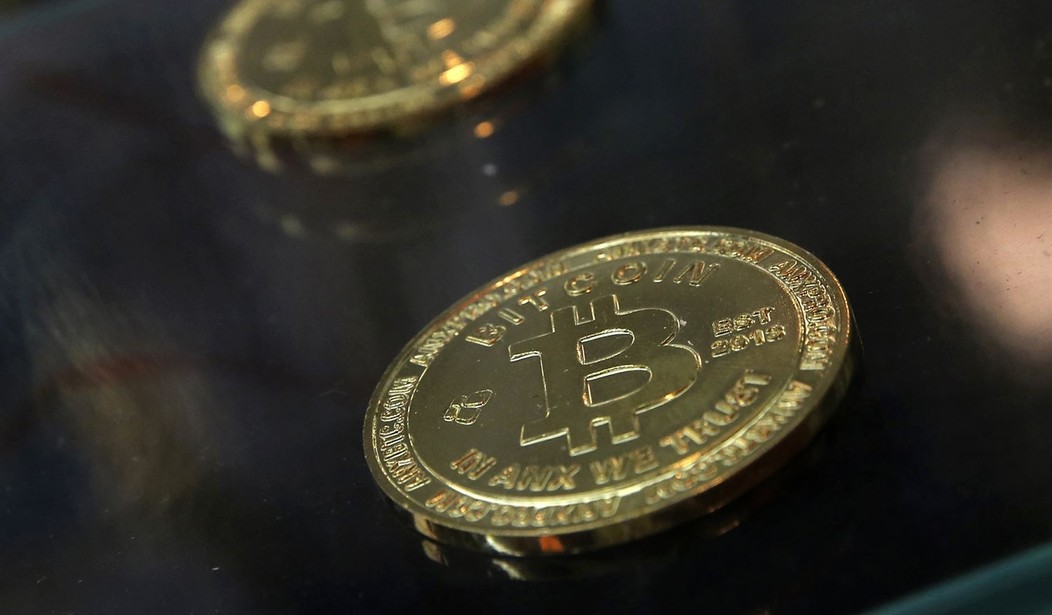President Donald Trump signed an executive order to stop the Biden administration’s attempt to develop a federal government-run cryptocurrency. The order also assessed the feasibility of developing a national digital asset stockpile “potentially derived from cryptocurrencies lawfully seized by the federal government through its law enforcement effort.”
This executive order was essentially a ringing endorsement from the federal government that cryptocurrency—though in competition with the dollars and coinage managed by the federal government—has value and is worth holding. The Biden administration strongly asserted that Bitcoin and other examples of crypto pose safety risks while proposing draconian regulations, such as 30% taxes on Bitcoin mining, to disincentivize their use. President Trump’s executive order was sorely needed to protect the future of this industry.
However, much more needs to be done to protect the American people from the federal government’s financial sector overreach.
The Biden administration set the regulatory state up to work towards nationalizing the entire payment industry — not just cryptocurrency. Under Biden’s watch, rogue regulatory agencies tried to crack down on Zelle and the monthly peer-to-peer payment systems that millions of Americans use. They falsely cited safety as the excuse for the crackdown, just as they did with Bitcoin. Still, the fact that the government cannot fully control and monitor the purchases made on these systems was undoubtedly its true motivation for acting against them.
For many government regulators, federal control is the most critical aspect of the payment industry. For example, increasing government control over the nation’s payments was clearly why the Biden administration’s Department of Justice recently went after Visa’s debit card network. The company has a 60 percent market share - hardly a monopoly. However, it represents a significant amount of the payments processed nationwide — a sizable percentage that some government know-it-alls would prefer to be managed by a centralized, government-favored payment network.
Recommended
While exploring the potential of a central bank digital currency (CBDC), which would, of course, have given the Biden administration far greater control over payments and consumer financial data, it also pushed heavily for nationalized payment processing through FedNow, a 24/7 processing system run by the Federal Reserve.
Worries over monopolization cannot be the true reason behind the Biden administration’s crackdown on private industry payment processors’ power because the digital payment processors (Zelle, Venmo, and the like) and the debit card companies (Visa, MasterCard, Discover, and others) compete against one another for business, suggesting a competitive marketplace. The Consumer Financial Protection Bureau admitted this when it said, “The nation’s largest banks felt threatened by competing payment apps.”
Yet, the Biden administration went after both. This contradiction suggests the government’s ultimate goal of cracking down on digital payment and debit card processors is not to preserve competition but to shift control to public or quasi-public alternatives.
I was so concerned that the Biden Administration was intent on controlling these networks that, in 2023, I introduced H.R 3172, the Digital Dollar Pilot Prevention Act, which would have prevented the Federal Reserve from launching any pilot program that tests the operability of any CBDCs. I also co-sponsored House Majority Whip Tom Emmer’s legislation prohibiting the Federal Reserve from offering CBDC services to any individual.
We do not want to live in a country where the government has complete control over all our payment transactions. That will lead to no privacy and no consumer choice. Worst of all it would open the door to the government again cutting off funding to individuals and entities that it disagrees with politically. President Obama did just this during Operation Choke Point to target Second Amendment rights, pro-life groups, tobacco users, and activists who dared to question their government.
President Trump’s actions to protect Bitcoin and the cryptocurrency industry from federal interference are outstanding, and there is a lot more that needs to be done over the next four years to protect us from government overreach in the payment processing industry. Protecting the rest of the payment industry from the Biden administration’s imposed federal threats will require a whole government approach to reviewing and clearing off the books.
While Pam Bondi and Gail Slater at the DOJ, Jonathan McKernan at the CFPB, and Elon Musk at DOGE will have their work cut out, no team is better suited for the job. They are all itching to provide the American people with the sweeping change they voted for at the ballot box, and their unmatched work ethics and political instincts will help them beat back this public sector power grab in no time. And that’s something we all should be able to get behind.
Mooney is a former Member of Congress from West Virginia who served on the House Committee on Financial Services.

























Join the conversation as a VIP Member